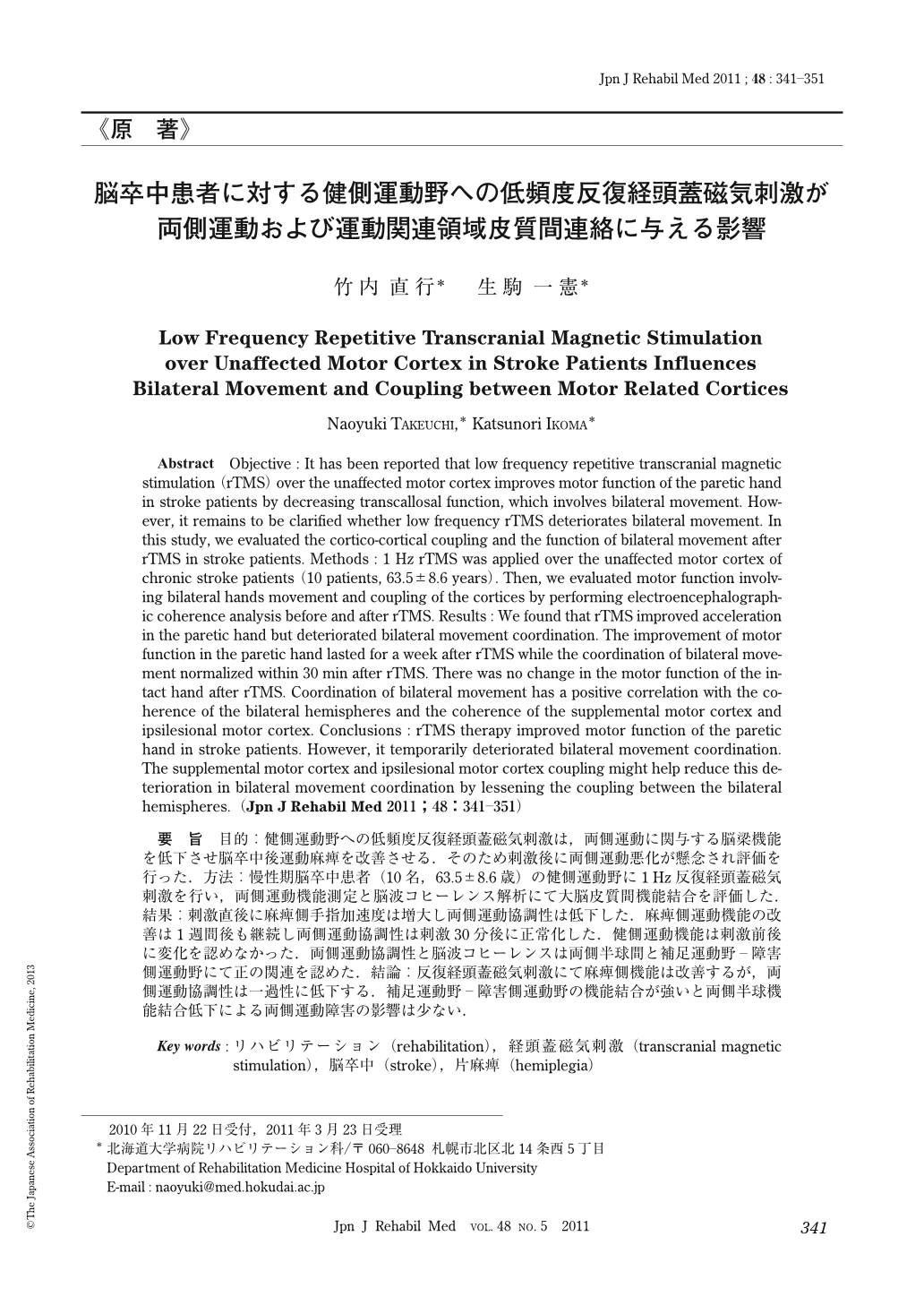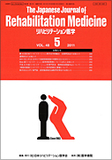Japanese
English
- 販売していません
- Abstract 文献概要
- 1ページ目 Look Inside
- 参考文献 Reference
要旨 目的:健側運動野への低頻度反復経頭蓋磁気刺激は,両側運動に関与する脳梁機能を低下させ脳卒中後運動麻痺を改善させる.そのため刺激後に両側運動悪化が懸念され評価を行った.方法:慢性期脳卒中患者(10名,63.5±8.6歳)の健側運動野に1Hz反復経頭蓋磁気刺激を行い,両側運動機能測定と脳波コヒーレンス解析にて大脳皮質間機能結合を評価した.結果:刺激直後に麻痺側手指加速度は増大し両側運動協調性は低下した.麻痺側運動機能の改善は1週間後も継続し両側運動協調性は刺激30分後に正常化した.健側運動機能は刺激前後に変化を認めなかった.両側運動協調性と脳波コヒーレンスは両側半球間と補足運動野-障害側運動野にて正の関連を認めた.結論:反復経頭蓋磁気刺激にて麻痺側機能は改善するが,両側運動協調性は一過性に低下する.補足運動野-障害側運動野の機能結合が強いと両側半球機能結合低下による両側運動障害の影響は少ない.
Abstract Objective : It has been reported that low frequency repetitive transcranial magnetic stimulation (rTMS) over the unaffected motor cortex improves motor function of the paretic hand in stroke patients by decreasing transcallosal function, which involves bilateral movement. However, it remains to be clarified whether low frequency rTMS deteriorates bilateral movement. In this study, we evaluated the cortico-cortical coupling and the function of bilateral movement after rTMS in stroke patients. Methods : 1 Hz rTMS was applied over the unaffected motor cortex of chronic stroke patients (10 patients, 63.5±8.6 years). Then, we evaluated motor function involving bilateral hands movement and coupling of the cortices by performing electroencephalographic coherence analysis before and after rTMS. Results : We found that rTMS improved acceleration in the paretic hand but deteriorated bilateral movement coordination. The improvement of motor function in the paretic hand lasted for a week after rTMS while the coordination of bilateral movement normalized within 30 min after rTMS. There was no change in the motor function of the intact hand after rTMS. Coordination of bilateral movement has a positive correlation with the coherence of the bilateral hemispheres and the coherence of the supplemental motor cortex and ipsilesional motor cortex. Conclusions : rTMS therapy improved motor function of the paretic hand in stroke patients. However, it temporarily deteriorated bilateral movement coordination. The supplemental motor cortex and ipsilesional motor cortex coupling might help reduce this deterioration in bilateral movement coordination by lessening the coupling between the bilateral hemispheres.

Copyright © 2011, The Japanese Association of Rehabilitation Medicine. All rights reserved.


